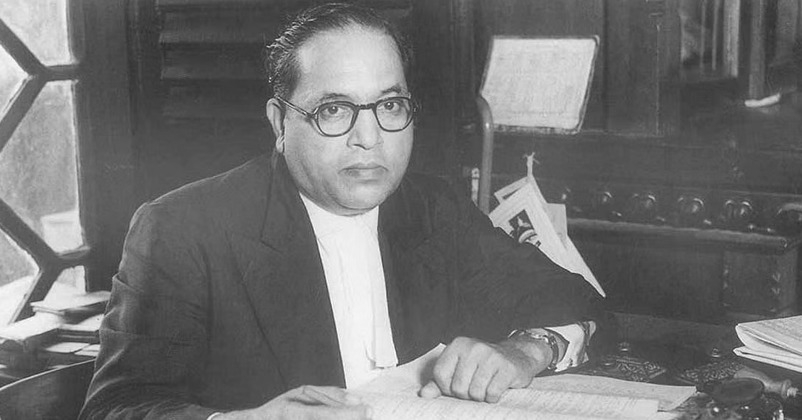On Ambedkar Jayanti, we pay homage to the leader who opposed Article 370 in J&K and fought for equality
14 Apr 2022 18:12:42

Today on 14 April, India pays homage to the principal architect of the Indian Constitution, Dr. Bhimrao Ramji Ambedkar on his birthday. Born on April 14, 1891 in Madhya Pradesh, an economist and advocate of human rights and women empowerment, Dr Ambedkar is considered a leading nation builder of India.
Ambedkar Jayanti is being observed as a public holiday throughout the country since 2015. He headed the committee that drafted the Indian Constitution, which was adopted on January 26, 1950. By profession, he was a jurist and economist, and also served as Law and Justice Minister in the first cabinet of Jawaharlal Nehru. Ambedkar's legacy as a socio-political reformer had a deep effect on modern India. He passionately believed in individual freedom and criticised caste-based society.
Ambedkar was against Article 370
From time to time and on various platforms, Ambedkar had opposed the policies of the Nehru government related to J&K.
The draft Constitution, which was handed over by Ambedkar, the drafting committee chairman, to Constituent Assembly Chairman Rajendra Prasad on February 21, 1948, did not contain the provision granting special status to J&K. Jawaharlal Nehru strongly favoured special status as well as Sheikh Abdullah’s prime ministership of the state. During the meeting with Sheikh Abdullah, Ambedkar opposed the provision, which would lead to breaking the fabric of national unity and integrity.
He turned down the demand for special status and advised that “You want India to defend Kashmir, feed its people, give Kashmiris equal rights all over India. But you want to deny India and Indians all rights in Kashmir. I am a Law Minister of India; I cannot be a party to such a betrayal of national interests.”
Ambedkar realised that J&K’s special status would create another layer of sovereignty within sovereign India, which can be detrimental to the unity and integrity of the Republic.
Article 370 led to the creation of a separate flag and separate constitution, which engendered feelings of separatism and regional autonomy, misleading the youths and ultimately gave birth to terrorism, corruption and misgovernance. The state had to face isolation from mainstream development programmes and policies brought in by central governments.
Ambedkar’s Dream fulfilled After Abrogation of Article 370 & 35A
With the abrogation of article 370 on August 5,2019, the country has taken a historic decision and a new era of development has begun in Jammu, Kashmir and Ladakh. It's only after the abrogation of article 370, a new dawn of social equality and equal rights for all, is taking place in J&K. The Valmikis living in Jammu and Kashmir were among the worst victims of human rights violations in the erstwhile state.
Valmikis are essentially Dalits. Historically, they have faced widespread oppression and repression from other castes. They have often been victims of caste-based violence. Valmikis, who for over six decades had been discriminated against only because they were not ‘permanent residents'. Only with the abrogation of art 370, they could get equal rights.
Women got equal rights
Earlier, women who married men outside J&K were deprived of property rights but that changed after the abrogation of art.370. Women in J&K are now able to buy property and tranfer that to their children too even if they get married to non local residents.
In another added provision wherein husband of a local woman, who is a domicile of UT J&K, was made eligible to get a domicile status. Prior to that, the husbands of J&K women from outside the UT were ineligible for applying for a domicile certificate. Today women of J & K share equal rights as men which were far less when art. 35 a and 370 existed.
Reservation in 3-tier Panchayati system established
It's only after the abrogation of art 370 that three tier Panchayati system could establish in J&K. In the recently held District Development Council (DDC) elections in the UT J&K , that too for the first time ever post abrogation of art.370 , one hundred women out of 280 seats came out victorious and 6 out of 20 DDC chairpersons are women. Women were granted 33% reservation which was to empower them politically.
It won't b wrong to say that correction of this historical blunder by PM Narendra Modi on August 5/2019 was a real tribute to Baba Saheb Ambedkar.